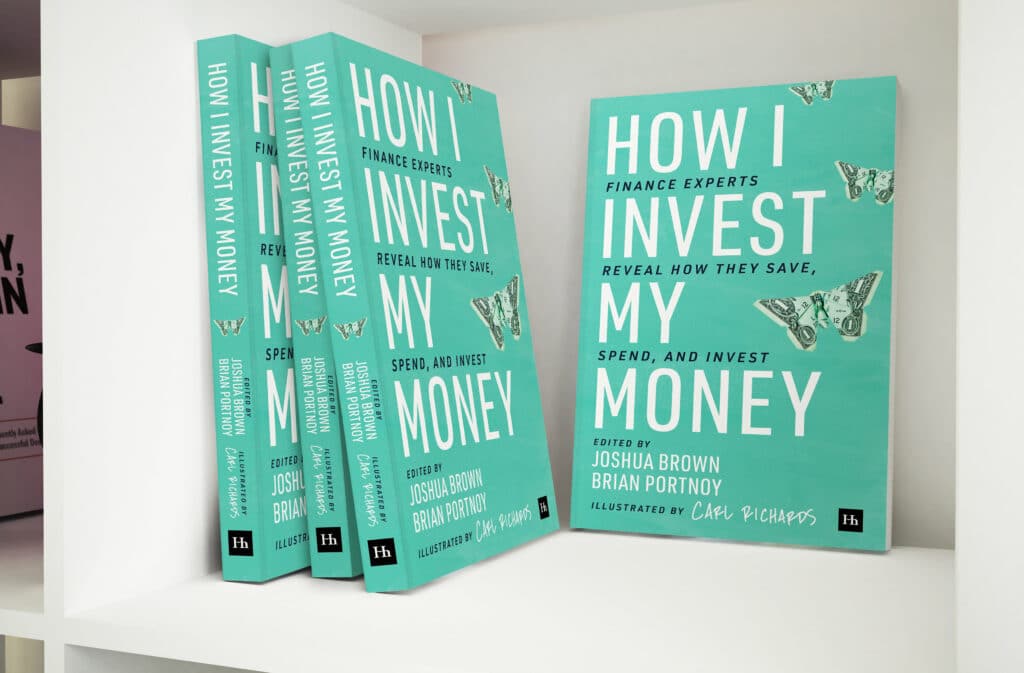How I invest my money

Joshua Brown is the CEO of New York City-based Ritholtz Wealth Management, in this book he interviews a number of financial advisors in how they invest their own money, since most of the time people come to them for advice, but rarely they discuss how they invest their own money.
1. Morgan Housel
His investing strategy doesn’t rely on picking the right sector, or timing the next recession. It relies on a high savings rate (Building from a young age), patience and optimism that the global economy will create value over the next several decades. I spend virtually all of my investing effort thinking about those three things - especially the first two which I can control.
The philosophy of investing is to pick the best strategy that fits an individual’s goal, in this case is to achieve independence.
2. Christine Benz
She and her husband try to manage their financial affairs in the same way, so they can stay focused on what matters most to them: working in careers that we find rewarding; pursuing our shared passions of music, food and travel; being engaged in our community ; and staying close to family.
3. Brian Portnoy
From the experience where his parents used money to serve as both a language of conflict and a currency of control, he concluded money is a power tool: to buy things and to hurt others.
True wealth is the ability to underwrite a life that is meaningful to me (David Foster Wallace: being truly educated, being a individual thinker is to say to say what things have meaning to me, because what give you meaning will eat you alive)
Their goal was: a) living a day-to-day life of convenience with as little aggravation as possible, such that we can afford a meaningful life - one filled with deep connections, wonderful experiences ( travels), professional achievement, and some sense that we’re living off something beyond ourselves.
4. Joshua Brown
- Mixture of active and passive, mutual funds, individual securities and ETFs and a mixture of public and private assets
- All-equity model because relatively young, can bear risk and will not be accessing this capital for at least another 25 years.
- Some individual stocks, mostly companies where he is a fan, user and customer of the products and services: JPMorgan, Slack, Startbucks, Shake Shack, Apple, Amazon, etc. Buy it when the opportunities come; buy them and don’t sell them.
5. Bob Seawright
-
Our decision-making systems default toward immediate, tangible rewards, which means we are prone to short-change or ignore investments in intangible, longer-term initiatives. It’s easy to lose sight of our purposes when life happens to us.
-
There is frequently a gaping hole between the life people say they want and the life they live, and the gap is routinely self-inflicted. Its often because your priorities are misplaced. You don’t have your purpose in order.
6. Carolyn McClanahan
- The joy of reading early regardless genre
- Full scholarship for MD for being the poorest female in the class
- The most important determinant of financial independence was not how much you save - it is how much you spend
- Diversification and investing for the long term
bear market funds that would provide protection in a downturnhalf active half passive funds- Full passive
- 50% fix income and 50% equities
- Always invest in yourself, Your ability to work is your safest and highest returning asset, physical & mental health, and relationships
7. Tyrone Ross
- Crypto Assets and the equity of private companies
- Wealth building power of ownership
9. Shirl Penney
-
Capital in 4 category: personal, family, philanthropic (10% total income),fun
-
Personal
- Index funds, 10% fixed income, 10% cash
- Invest in things you know and with people you know
-
Family
- Personal +
-
Philanthropic
- 30% index, 20% high dividend, 25% fixed income, 15% international, 10% cash
10. Ted Seides
- First principles and good investment habit before developed bad ones